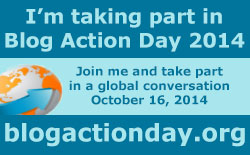Monty Python explains global inequality debates
“It is symbolic of our struggle against oppression.”
This Monty Python skit haunts me, hitting too close to the bone if you work in a rights-based organization. When I got into development work in the 1990’s, the UN and some NGOs were getting their heads around “rights based programming.” We re-described “needs” as “rights,” talked about “beneficiaries” as “rights bearers,” slammed our fists on the table, and for the most part, went back to business as usual. I now evoke “Monty Python” at Oxfam to urge colleagues never to do just that.
Here’s what I realized. Most good programmers already understood the rights principles that mattered; the bad ones just learned to spin. I came to think a rights lens was not useful for engaging or describing rights victims, but could help to push practitioners to identify perpetrators, and work out how to hold them to account, even if it meant risking our programming or our relationships with elites. That work was different and difficult and separated the real rights-based organizations from the PR machines. Some organizations ultimately backed away. Others radically changed their business model. I joined Oxfam because I believed it was serious about holding the powerful accountable.
But I’m getting nervous again—this time about Monty Python embracing “inequality.” Consider how the UN and World Bank are talking about inequality. The authors of the UN’s High Level Panel Post 2015 report tried to hardwire inequality into the new MDG goals by committing to “leave no one behind.” But the draft goals focus on one side of the inequality equation: on poverty, ignoring wealth (such as that half of humanity possesses the same amount of wealth as the world’s richest 85 people last year). The World Bank proudly commits to “shared prosperity” for the bottom 40 percent in its new target. But sharing by whom? Until they answer that question, Oxfam and others will keep challenging them “to reduce disparities between the top and bottom.”
Why does this matter? Because reframing the poor as “the unequal poor” while shutting off discussions about the obligations of the wealthy will waste a huge amount of development thinking over the coming years, and change very little. It’s not as if the last UN strategy was “let’s make sure to leave a few folks behind.” And it’s not as if the Bank used to promote “prosperity reduction strategies” for the poor.
My test for whether inequality discussions are adding value or “a symbol of our struggle against reality” (to paraphrase John Cleese) is whether we find a fresh and useful way to talk about unfair wealth, not unequal poverty.
Here is the interesting debate: Is there a quantity of wealth which is just unfair or is it only a certain type of wealth? Africa’s richest man has made $23 billion while 80 million of his fellow Nigerians survive on less than $2 a day. Africa’s richest woman has amassed $3 billion while most of her Angolan compatriots live in extreme poverty. Is it the level of wealth that we should be worried about or the fact that it was made in two of the world’s most corrupt countries? Are we ok that Bill Gates is worth $79 billion because he got it cleanly and gives most of it away (some of it to Oxfam)?
The answer to those questions will change how we measure inequality, what research we do, what policy solutions we seek, and how we build or join movements for change. That’s the debate I want to be part of.
This post originally appeared on the From Poverty to Power blog.
